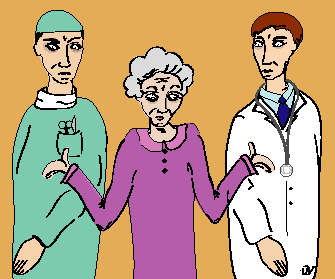A. Mark Clarfield, MD
 Having spent several years as a family doctor before becoming a consultant geriatrician, I have stood on both sides of the fence. As a primary-care physician, I was subjected to the humiliations dished out by many a consultant. Yet, to my chagrin, in later years, I found myself perpetrating similar outrages on physicians seeking my help.
Having spent several years as a family doctor before becoming a consultant geriatrician, I have stood on both sides of the fence. As a primary-care physician, I was subjected to the humiliations dished out by many a consultant. Yet, to my chagrin, in later years, I found myself perpetrating similar outrages on physicians seeking my help.
As patients, the elderly are particularly vulnerable to getting caught in the crossfire when consultant and consultee do not see eye to eye. The main reason for this is that no one needs the services of good primary care with appropriate consultant backup more than the older patient.
In this article as well as in the March issue, I shall describe mistakes that I have made (or seen colleagues make) on both sides of the great divide between consultant and consultee.
Sins of the Consultant
1. Arrogance: Chapter 1
The specialist has, by definition, a very comprehensive knowledge of a specific area of medicine. This knowledge can be used to beat the consultee over the head with implied or overt criticism.

 Having spent several years as a family doctor before becoming a consultant geriatrician, I have stood on both sides of the fence. As a primary-care physician, I was subjected to the humiliations dished out by many a consultant. Yet, to my chagrin, in later years, I found myself perpetrating similar outrages on physicians seeking my help.
Having spent several years as a family doctor before becoming a consultant geriatrician, I have stood on both sides of the fence. As a primary-care physician, I was subjected to the humiliations dished out by many a consultant. Yet, to my chagrin, in later years, I found myself perpetrating similar outrages on physicians seeking my help.